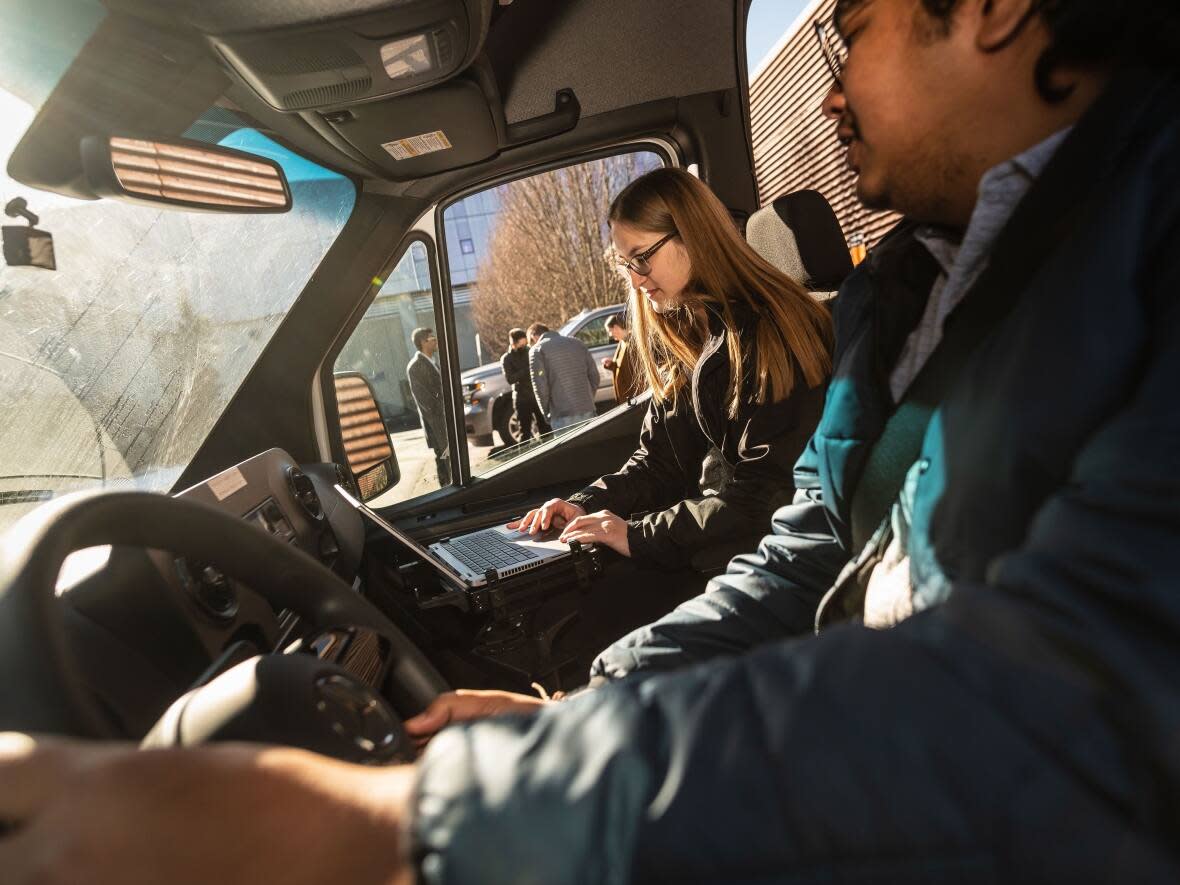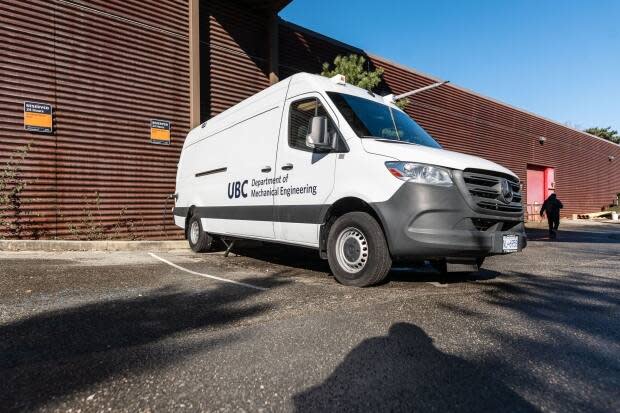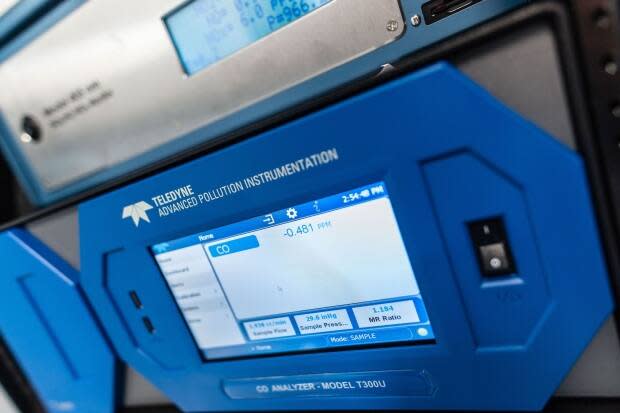UBC deploys pollution-sniffing van to measure air quality in Metro Vancouver

A team of scientists out of the University of British Columbia has outfitted a mobile lab that can detect air pollutants on the go.
The scientists say because the van can collect data as often as every second it's on the move, it will show a more detailed picture of the air quality around Metro Vancouver in real-time.
"Using a mobile laboratory rather than fixed air quality sensors means we can cover a greater distance," said Naomi Zimmerman, a professor of mechanical engineering at UBC, in a written news release.
It also means air quality samples can be gathered in hard-to-reach areas, where it may be more difficult to install expensive monitoring equipment.

"We can sample anywhere from highways, to by the ocean, to the middle of a field with the same instrumentation in a single day."
The van is called PLUME — Portable Laboratory for Understanding Human-Made Emissions — and was developed by Zimmerman and her team at UBC's iReach lab.
It uses a variety of instruments to measure the concentrations of well-known pollutants, as well as emerging pollutants, including carbon monoxide, carbon dioxide, ground-level ozone, black carbon, methane, volatile organic compounds, and various sizes of ultrafine particles that can affect air quality.

PhD student Davi de Ferreyro Monticelli, one of the van's frequent drivers, says they've already made some interesting preliminary observations about how air quality differs across Metro Vancouver.
"We have seen that Richmond in terms of the air quality, is quite good compared to downtown Vancouver," he explained. "Mostly because you don't have too many industries in the areas that we've been with the van."
He says it's too early to draw any definite conclusions since the team only just began field work two weeks ago and won't be analyzing the data until next month.

The team is using a website called Smell Vancouver, where people can report odours they notice in Metro Vancouver to determine where to send the PLUME van.
"Smells have been treated a lot in the past, just as a nuisance," Monticelli said. "But more recently we have been looking at smells differently in a way that it can also harm the person and everyday life."
He says they want to find out if there is a correlation between unpleasant smells and poor air quality.
In a written release, Zimmerman says that breathing polluted air has been linked to health problems and to an estimated nine million premature deaths per year worldwide.
If they can establish a link between odours and air pollution, the team says their goal would be to create and publish maps to show members of the community how different areas are impacted.


